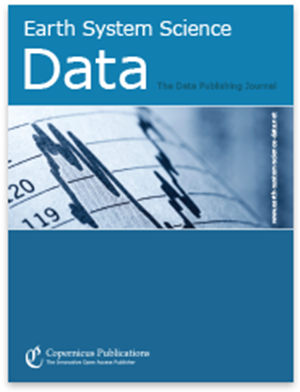基于哨兵-2 数据的波兰森林树种分布图
IF 11.6
1区 地球科学
Q1 GEOSCIENCES, MULTIDISCIPLINARY
引用次数: 0
摘要
摘要准确的林木物种组成信息对于各种科学应用以及森林资源清查和管理至关重要。全国范围的详细物种图是环境管理、保护、研究和规划的宝贵资源。在这里,我们利用哨兵-2 图像的时间序列对波兰的 16 个主要树种和属进行了分类。为了生成全面的光谱-时间信息,我们在谷歌地球引擎(GEE)中创建了被称为光谱-时间度量(STMs)的哨兵-2 季节性集合。我们计算了春季、夏季和秋季 15-30 天的短时间内的 STMs,涵盖 2018 年至 2021 年的多年度观测。波兰森林数据库作为参考数据,为了获得仅有纯林分的稳健样本,根据极高分辨率的正射影像,通过自动和目视检查对数据进行了验证,得出 4500 个多边形作为训练和测试数据。森林掩模来自 GEE 中的可用土地覆盖数据集,即欧空局的 WorldCover 和 Dynamic World 数据集。此外,我们还加入了 GEE 中的各种地形和气候变量,以提高分类的准确性。在分类过程中采用了随机森林算法,并通过交叉验证和测试数据集进行了区域调整精度评估。结果表明,全国林分物种绘图的准确率超过了 80%;但是,根据物种、地区和观测频率的不同,准确率也有很大差异。我们提供了可免费访问的资源,包括林木物种图谱以及训练和测试数据:https://doi.org/10.5281/zenodo.10180469(Grabska-Szwagrzyk,2023a)。本文章由计算机程序翻译,如有差异,请以英文原文为准。
Map of forest tree species for Poland based on Sentinel-2 data
Abstract. Accurate information on forest tree species composition is vital for various scientific applications, as well as for forest inventory and management purposes. Country-wide, detailed species maps are a valuable resource for environmental management, conservation, research, and planning. Here, we performed the classification of 16 dominant tree species and genera in Poland using time series of Sentinel-2 imagery. To generate comprehensive spectral–temporal information, we created Sentinel-2 seasonal aggregations known as spectral–temporal metrics (STMs) within the Google Earth Engine (GEE). STMs were computed for short periods of 15–30 d during spring, summer, and autumn, covering multi-annual observations from 2018 to 2021. The Polish Forest Data Bank served as reference data, and, to obtain robust samples with pure stands only, the data were validated through automated and visual inspection based on very-high-resolution orthoimagery, resulting in 4500 polygons serving as training and test data. The forest mask was derived from available land cover datasets in GEE, namely the ESA WorldCover and Dynamic World dataset. Additionally, we incorporated various topographic and climatic variables from GEE to enhance classification accuracy. The random forest algorithm was employed for the classification process, and an area-adjusted accuracy assessment was conducted through cross-validation and test datasets. The results demonstrate that the country-wide forest stand species mapping achieved an accuracy exceeding 80 %; however, this varies greatly depending on species, region, and observation frequency. We provide freely accessible resources, including the forest tree species map and training and test data: https://doi.org/10.5281/zenodo.10180469 (Grabska-Szwagrzyk, 2023a).
求助全文
通过发布文献求助,成功后即可免费获取论文全文。
去求助
来源期刊

Earth System Science Data
GEOSCIENCES, MULTIDISCIPLINARYMETEOROLOGY-METEOROLOGY & ATMOSPHERIC SCIENCES
CiteScore
18.00
自引率
5.30%
发文量
231
审稿时长
35 weeks
期刊介绍:
Earth System Science Data (ESSD) is an international, interdisciplinary journal that publishes articles on original research data in order to promote the reuse of high-quality data in the field of Earth system sciences. The journal welcomes submissions of original data or data collections that meet the required quality standards and have the potential to contribute to the goals of the journal. It includes sections dedicated to regular-length articles, brief communications (such as updates to existing data sets), commentaries, review articles, and special issues. ESSD is abstracted and indexed in several databases, including Science Citation Index Expanded, Current Contents/PCE, Scopus, ADS, CLOCKSS, CNKI, DOAJ, EBSCO, Gale/Cengage, GoOA (CAS), and Google Scholar, among others.
 求助内容:
求助内容: 应助结果提醒方式:
应助结果提醒方式:


